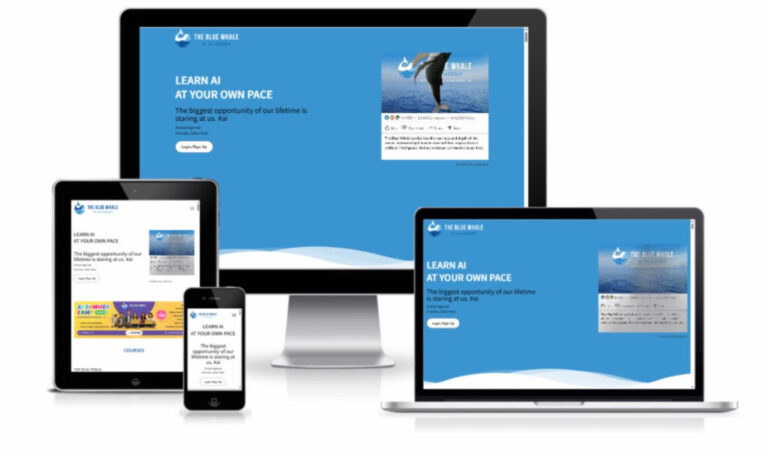The rapid rise of artificial intelligence is forcing people, businesses, and even entire nations to rethink the skills that matter most for the future. A new reality is unfolding: either you learn how to adapt to the AI-driven economy or you risk being left behind. This shift has given birth to a provocative phrase—“learn AI or be a plumber.” While it may sound extreme, it captures the widening gap between high-tech skills and hands-on trades, and the opportunities each presents.
According to Sharad Agarwal, Founder of ‘The Blue Whale AI Academy‘, “Artificial intelligence is no longer a futuristic concept; it is here, transforming industries from finance and healthcare to marketing and logistics. Businesses are leveraging AI to automate repetitive tasks, analyze vast amounts of data, and enhance decision-making. As a result, the demand for professionals who understand AI—whether in machine learning, data science, or AI-powered business solutions—is skyrocketing.
For knowledge workers, this means the bar is rising. Traditional roles in accounting, law, customer service, and even creative fields like content writing are being disrupted. Employees who don’t upgrade their skills risk being replaced by algorithms that can perform the same functions faster and cheaper. Those who embrace AI, however, can harness it as a powerful tool, enhancing productivity and opening doors to lucrative careers.”
The Case for Being a Plumber
Yet the “plumber” side of the phrase carries its own weight. Trades like plumbing, electrical work, and construction are far less vulnerable to AI disruption. A leaking pipe or faulty wiring requires physical presence, technical expertise, and problem-solving in real-world environments—areas where robots and algorithms still struggle. In fact, the demand for skilled tradespeople is growing in many parts of the world, driven by aging infrastructure and shortages of trained workers.
Plumbing may not sound glamorous, but it offers stability, high wages, and consistent demand. In many countries, plumbers earn more than college graduates saddled with student debt. And unlike tech roles, which can become obsolete with every new software update, plumbing skills remain relevant for decades.
A False Choice?
Framing the future as “AI or plumbing” simplifies a much more complex reality. The real question is not whether you should learn AI or pick up a wrench, but whether you are willing to adapt your skills to where the economy is moving. Both paths offer opportunity—but both also demand continuous learning.
For tech-savvy individuals, learning AI means more than just coding. It’s about understanding how to apply AI tools in your field—whether you are a marketer optimizing ad campaigns, a doctor using AI for diagnostics, or a teacher personalizing education. For those drawn to hands-on work, plumbing and other trades can be a secure and profitable choice, but they too are seeing innovation, with smart homes and IoT-enabled systems requiring new expertise.
The Hybrid Future
Interestingly, the future may belong not just to AI specialists or plumbers, but to people who bridge the two worlds. Imagine plumbers using AI-driven tools to detect leaks, predict maintenance issues, or optimize energy usage in smart buildings. Or consider tradespeople who integrate robotics, sensors, and AI analytics into their daily work. These hybrid professionals could command premium rates by combining practical skills with cutting-edge technology.
The phrase “learn AI or be a plumber” isn’t really about choosing one path over the other—it’s a wake-up call. In an era of rapid change, adaptability is the most valuable skill of all. Some will thrive by mastering AI, others by excelling in essential trades, and many by finding a way to blend both. The key is to avoid complacency, embrace lifelong learning, and position yourself where machines can’t easily compete.
Because whether you’re training algorithms or fixing pipes, the future will reward those who keep learning.
The Blue Whale AI Academy is a Cyber Gear venture.


